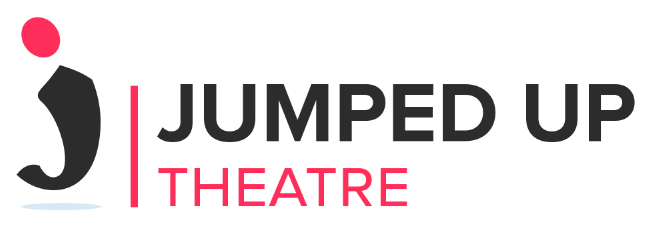Digital - the new frontier / barrier?
/It was a small but perfectly formed group that met on the afternoon of Monday 25 May (blazing hot Bank Holiday weekend!) But proving the Open Space principle of “Whoever comes are the right people.” the conversation covered what we might know, but also touched on some learning. My write-up here is more a notebook, trying to capture what was discussed, as I am sure we will revisit these theme, and ore than once.
What we think we know:
The rapid adaptation to adjust programming, delivery and communication in the the face of the pandemic has showed that were on a digital precipice - we just needed a crisis to push us over. Though it hasn’t always been comfortable we have come a long way already, maybe because we were already using a lot of this consumer tech already - but the skills are so embedded that we aren’t aware of them.
There have been negative outcomes: audiences are over saturated by content and it’s difficult to identify what is useful to engage with; some content has been poor, esp if it was never meant for online viewing, and could actually put people off. But the arts is a great place to learn, to fail, publicly, grow and move on - it’s unknown as yet if digital audiences can follow this path (though maybe they can - think of how gaming has grown in sophistication from days of PacMan.)
There are also positive outcomes. Projects are reaching people who would not otherwise be reached (esp those facing physical barriers.). Whilst on the one hand this brave new world is difficult and overwhelming, and there is a need for skill development of basic tools, knowledge and how to present ourselves digitally, barriers are being broken - we can do more than we thought we could - let’s not just leave people behind.
Not everything needs to go online.
There will always be a (big) space for analogue engagement. i.e Metal’s Consequences project is doing both, online sessions and posting out packs, and both reach new audiences. Nene Park is taking a similar approach with families and elders in residential homes.
Blending the digital and analogue, such as using the post, and postal structures such as chainmail, or providing a physical tool such as selfie-stick, or teaching dance both live and partly via prepared resources, creates a dynamic which fits in with people’s lives and gives the activity a intangible driver. Blending can result in empowering people to take steps in digital that they didn’t know they could, and at their own pace.
Work and social is dominated by digital - we might not actually want, or have time, to be online for your culture as well, this just adds to the overload, unless we consciously make space for it.
As with all developments an investment of time is essential, whether it’s to develop a new website or to understand the use and reaches of new platforms. We also need to find out if different audiences prefer different platforms, and ask a series of questions on from this. But knowledge of this is scant. Who is looking any this?
National Student Drama Festival , Gateshead International Festival, Nottstopping Festival Creation Theatre and the Heart of Glass Conference With For About 2020 have created digital engagement in different ways, which have been successful. There is considerable power in programming / curating programmes to create the impact you are looking for, such as a festival - which has greater reach than a standalone piece.
How are audiences that might enjoy the work being offered being reached to engage with it - this is outreach, but how do you do this when you are having to reach into people’s households, not via gatekeepers such as schools and community leads. We need relationships to stakeholders to get where we need to be.
There are some other professional, digital networks to tap into, such as Digital People in Peterborough and Hackspace - this conversation needs to be continued with them to unlock our / others professional skills - they might not consider themselves as artists but they are creative.
We need to find new ways of collaborating online, we can’t build trust in ways that we are used to, so we have to invest more time and energy into negotiating new relationships. We need to take some time to play, to free up the use of the medium of technology in order to create a space for creativity, removing the barriers of digital.
***
Next session. Monday 8 June, 4-5pm. With a focus on Creativity and Children, and Young People.
Please make sure you have signed up to the mailing list and can be identified when you sign into Zoom so we can admit you from the one waiting room.
Meeting ID: 945 7256 8240
Password: 063689
Thanks to all of the sessions participants:
Diane Goldsmith, PHACE / Urock
Josie Stone, CCC
Kate Hall, Jumped Up Theatre
Louise Thirwell, Nene Park
Mr Joshi, Jakariti Arts
Ruth Campbell, Metal
Sarah Saxby, Student Placement
Tim Casson, Dance Artist

